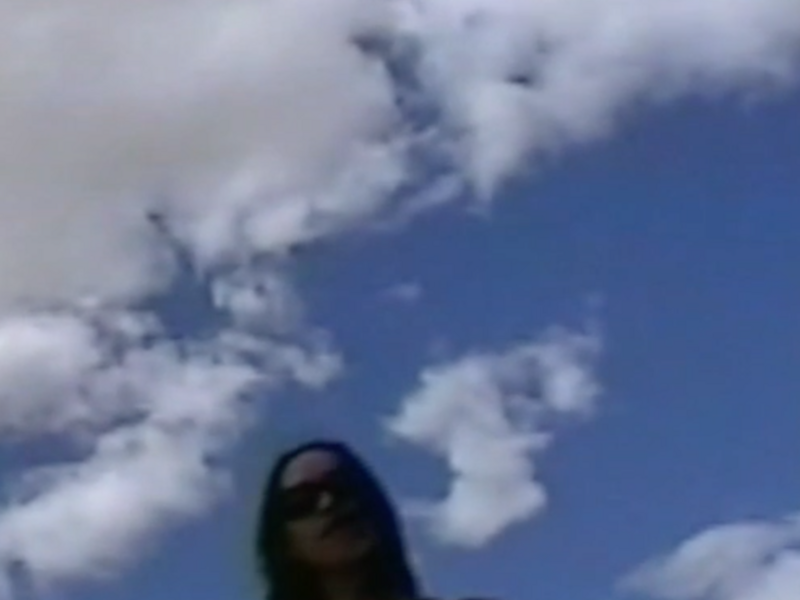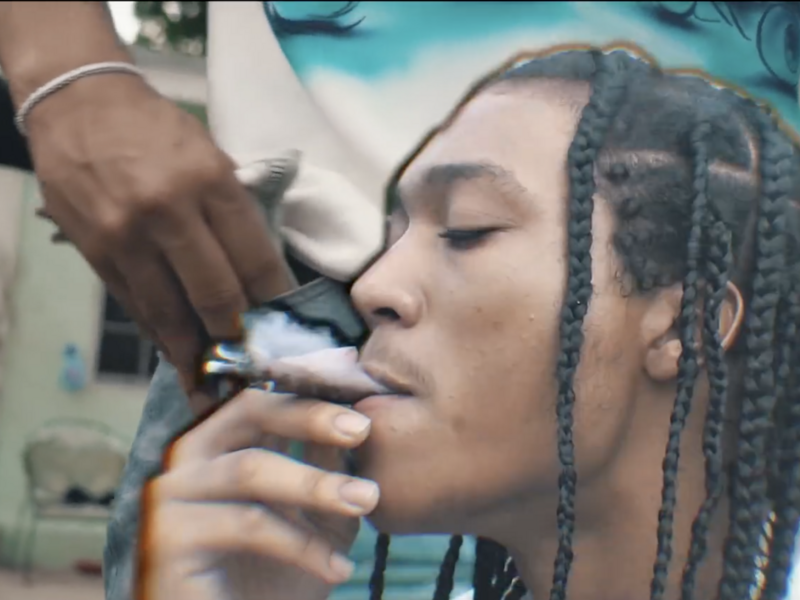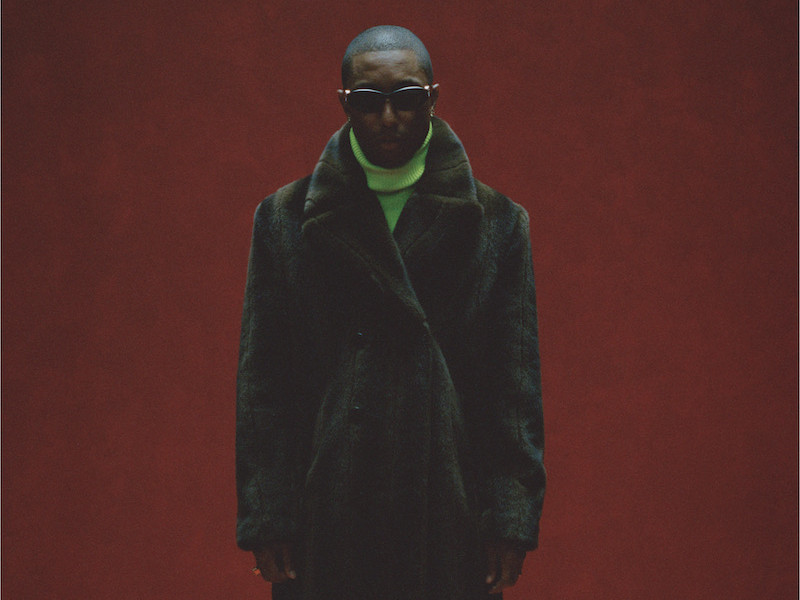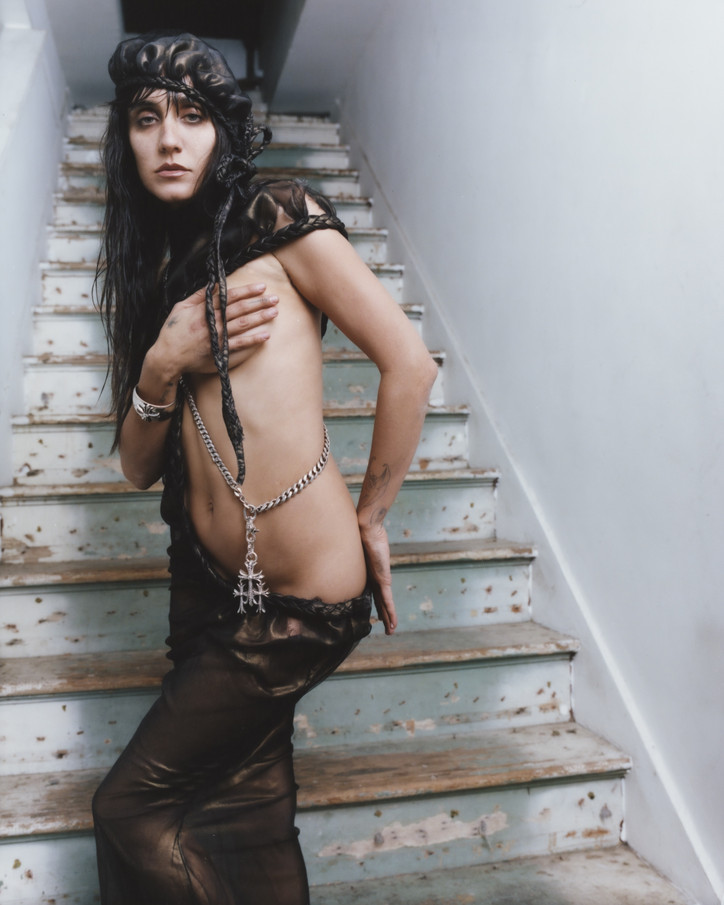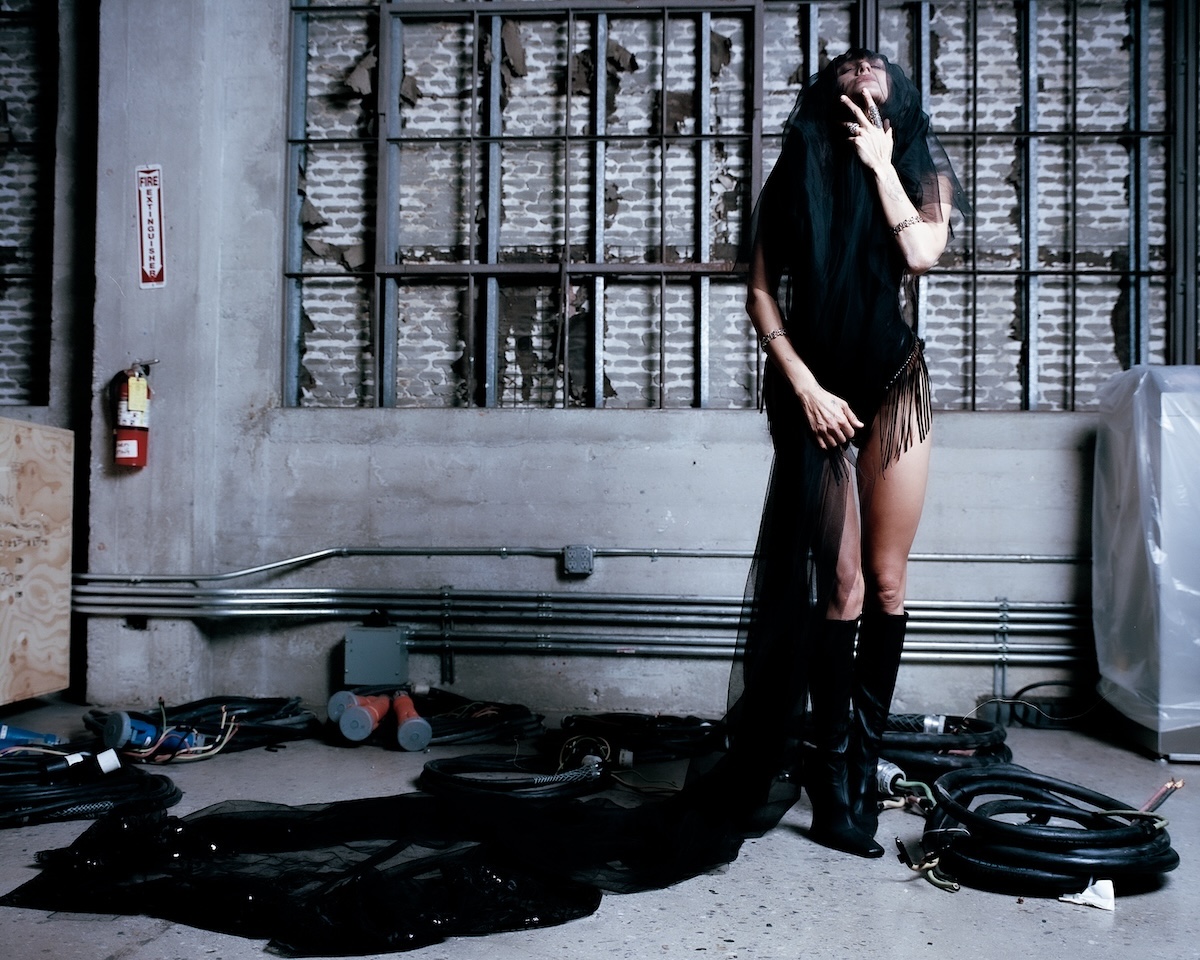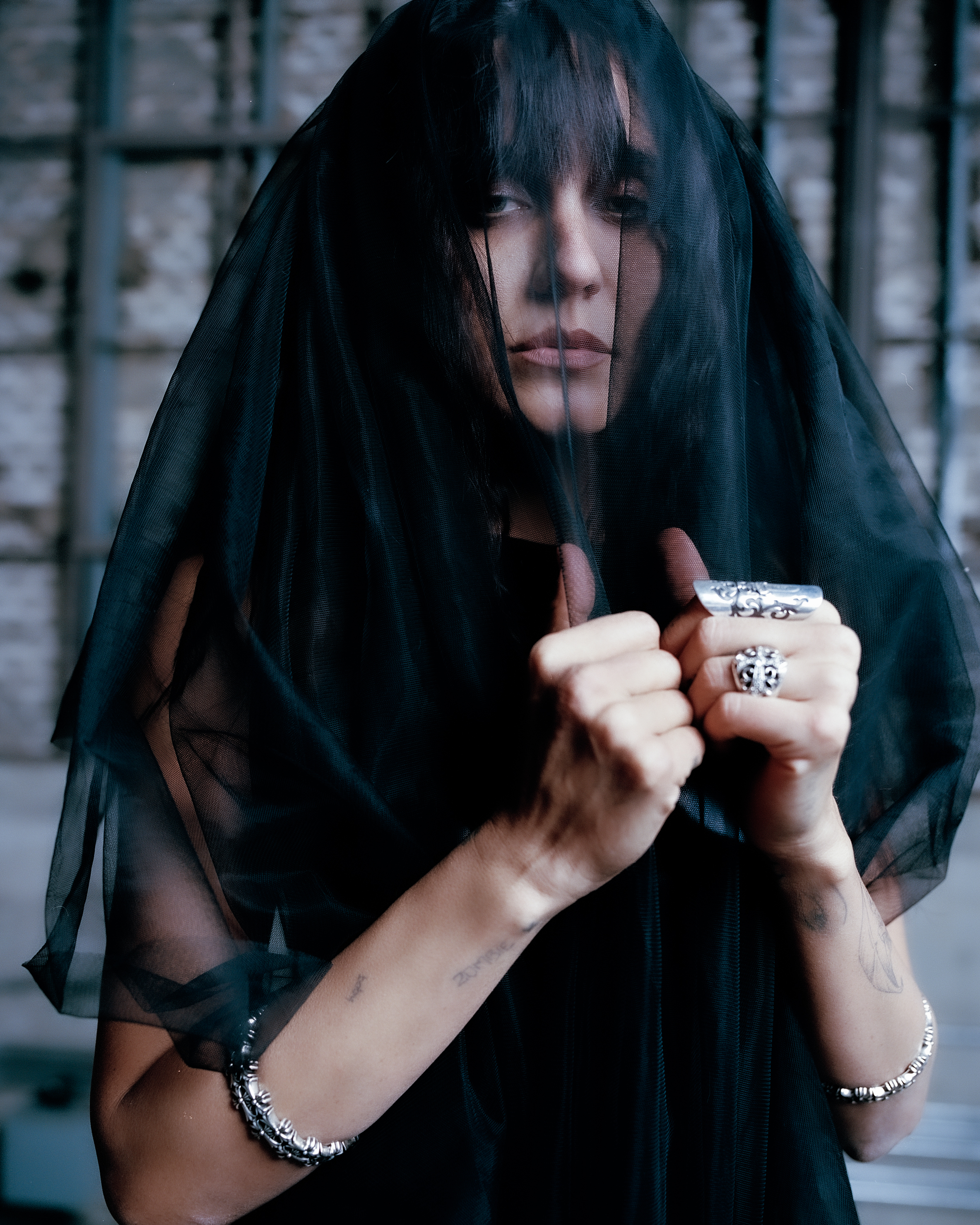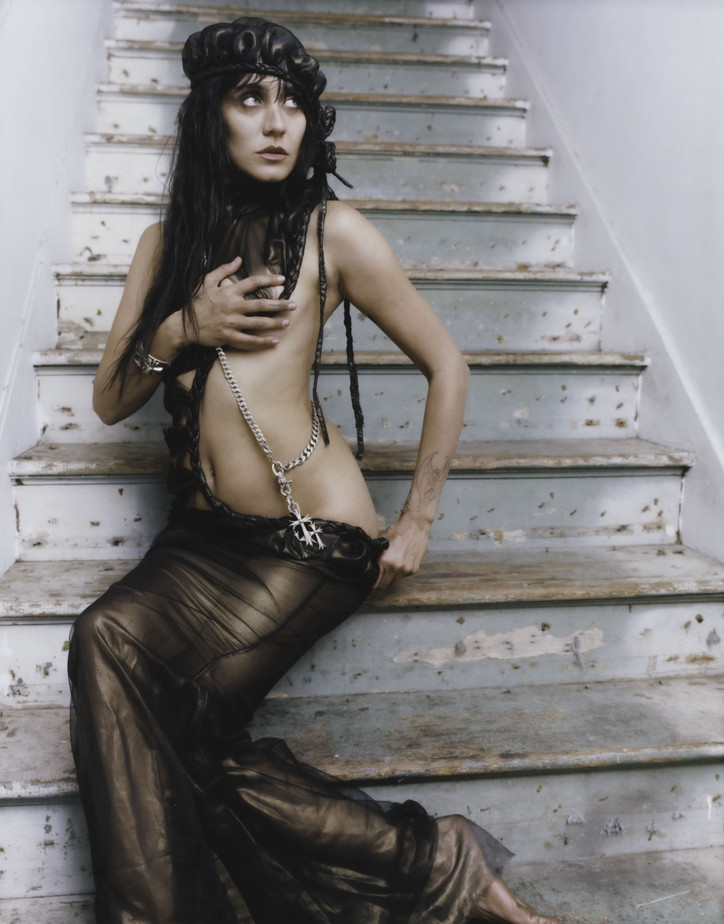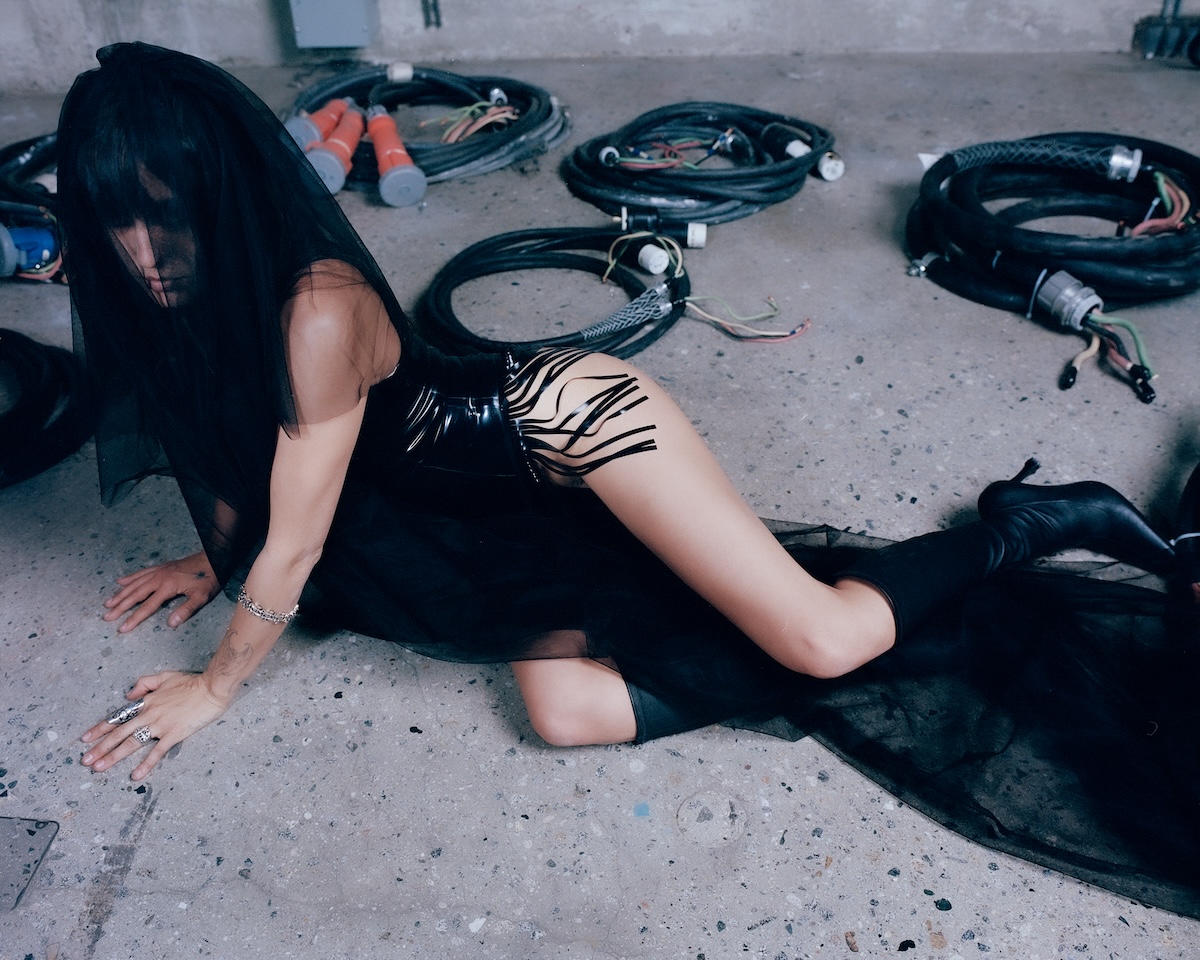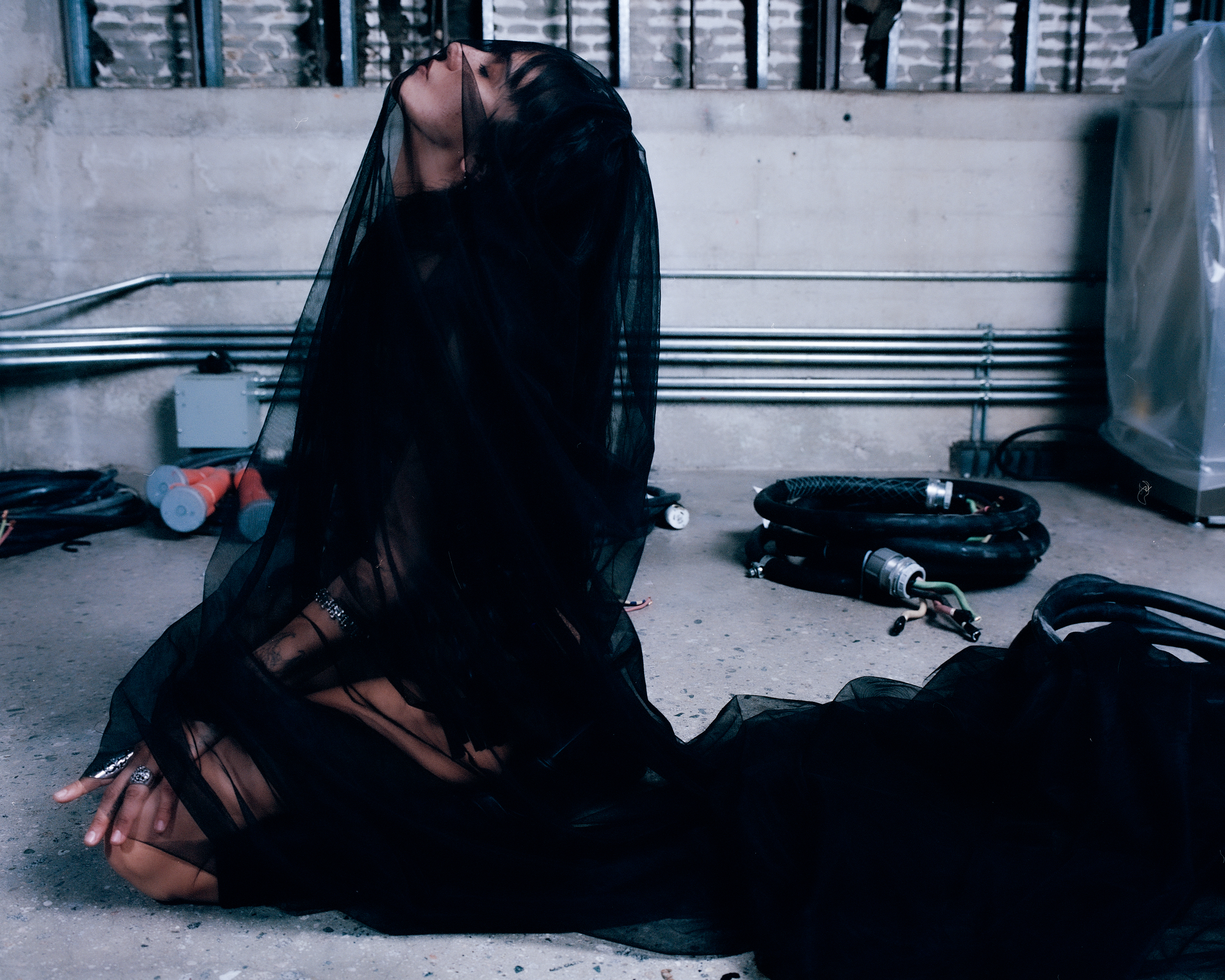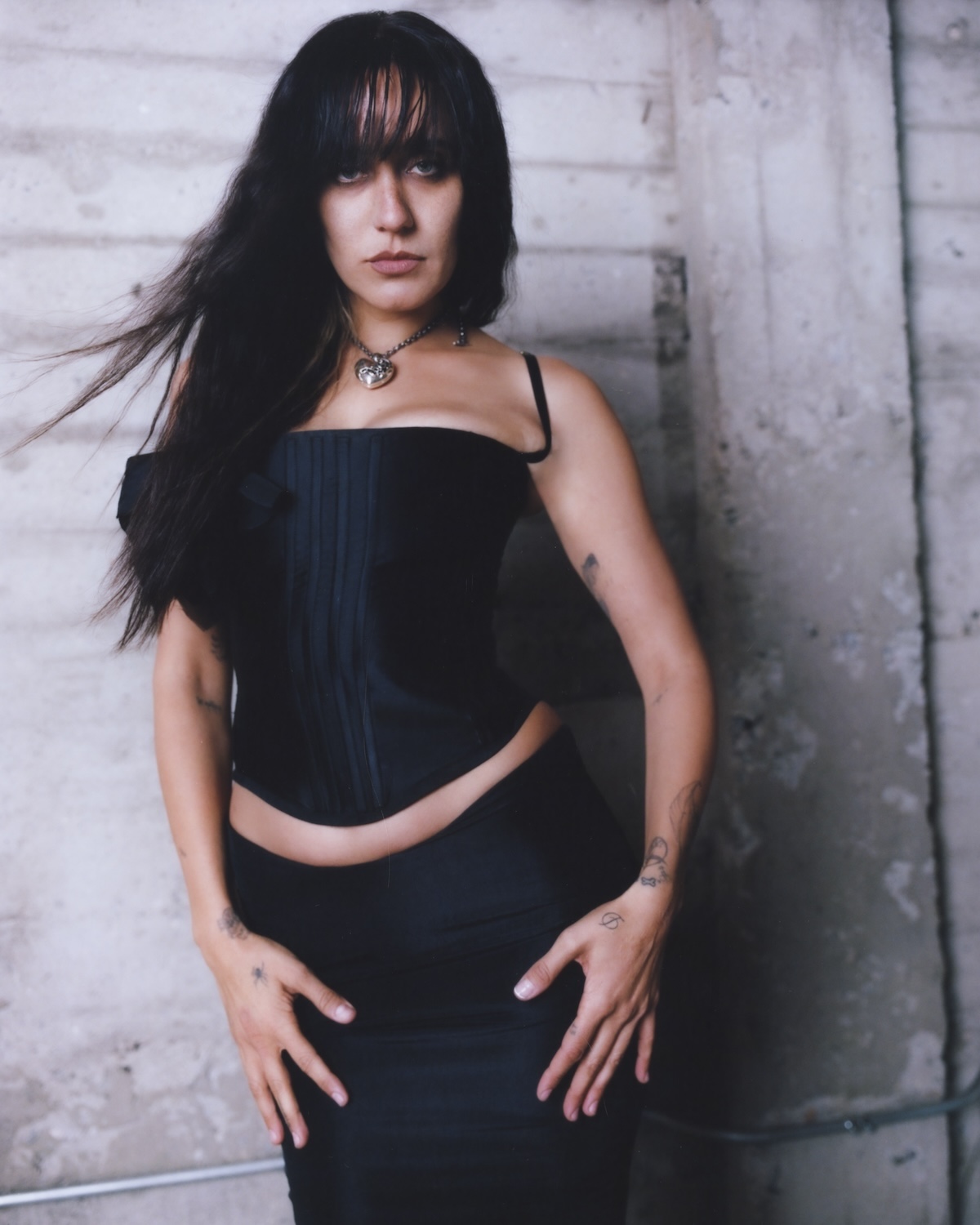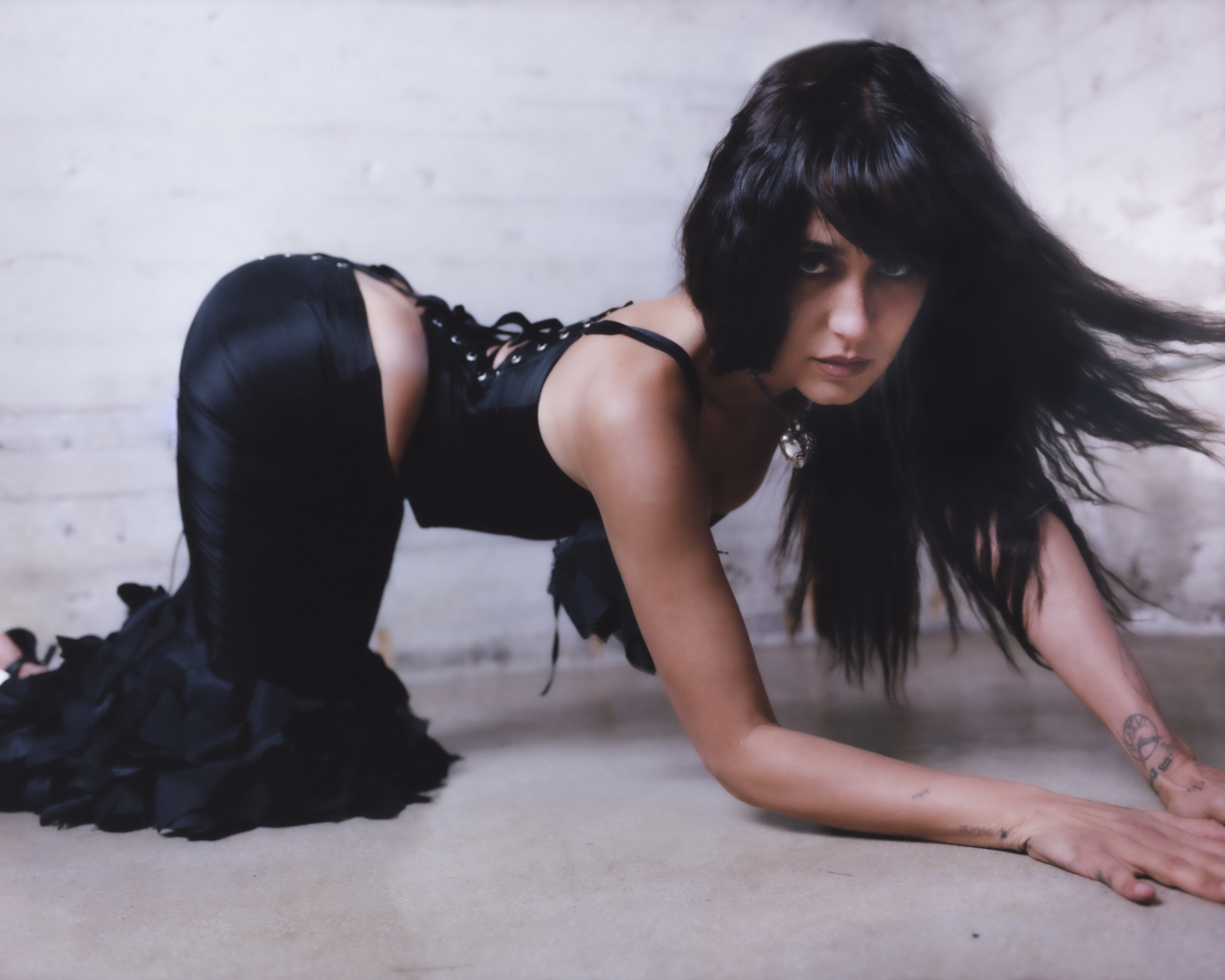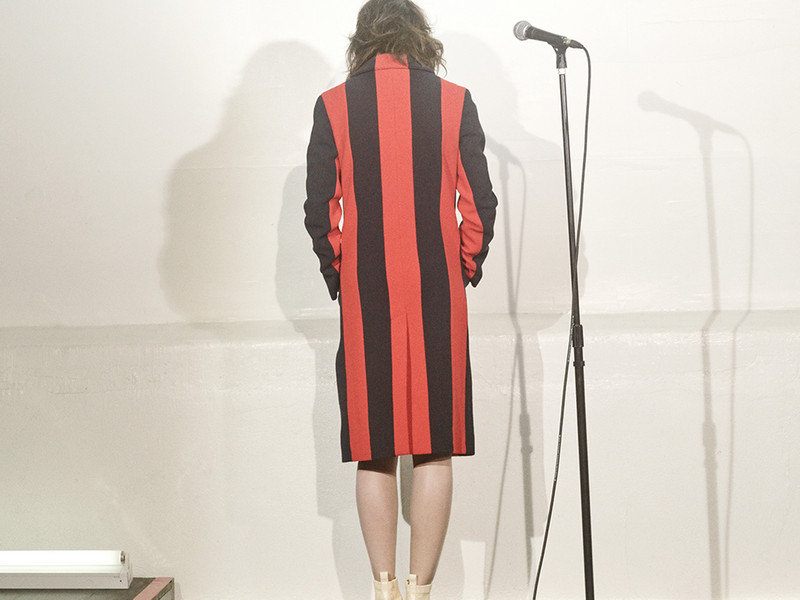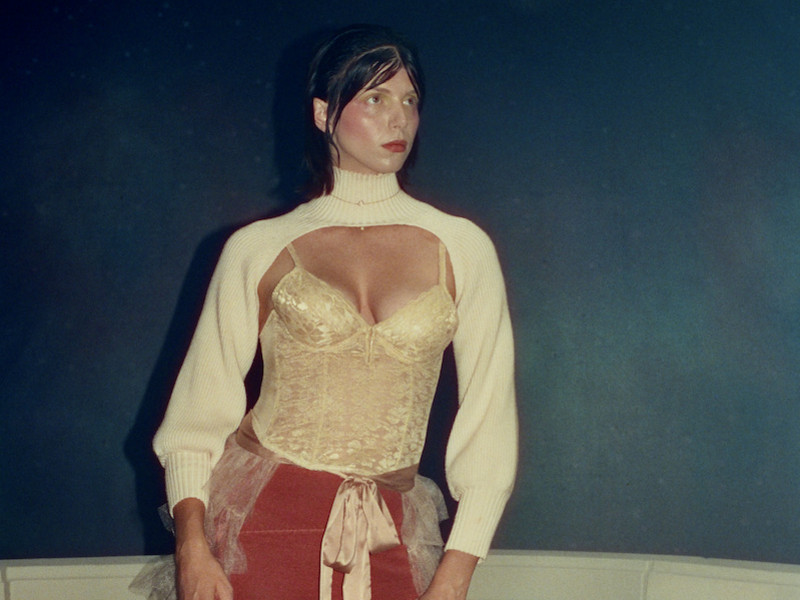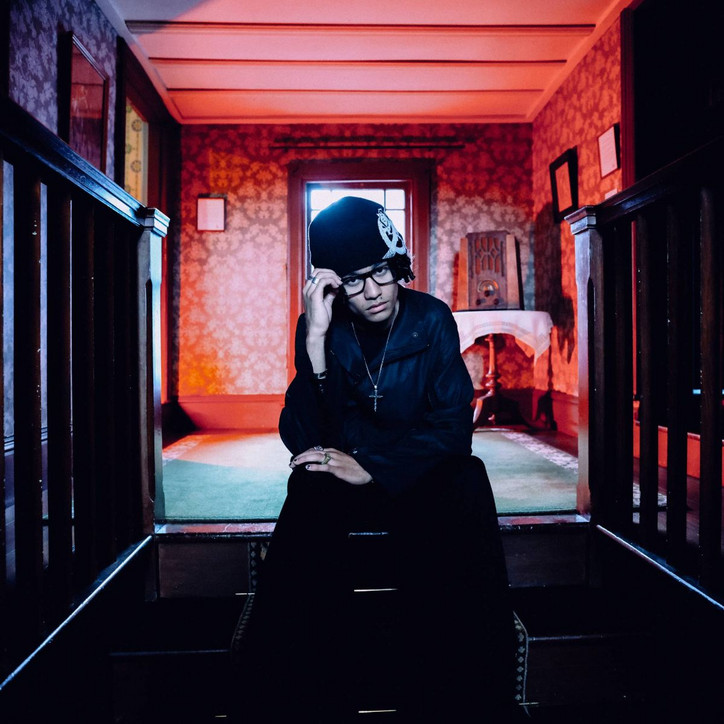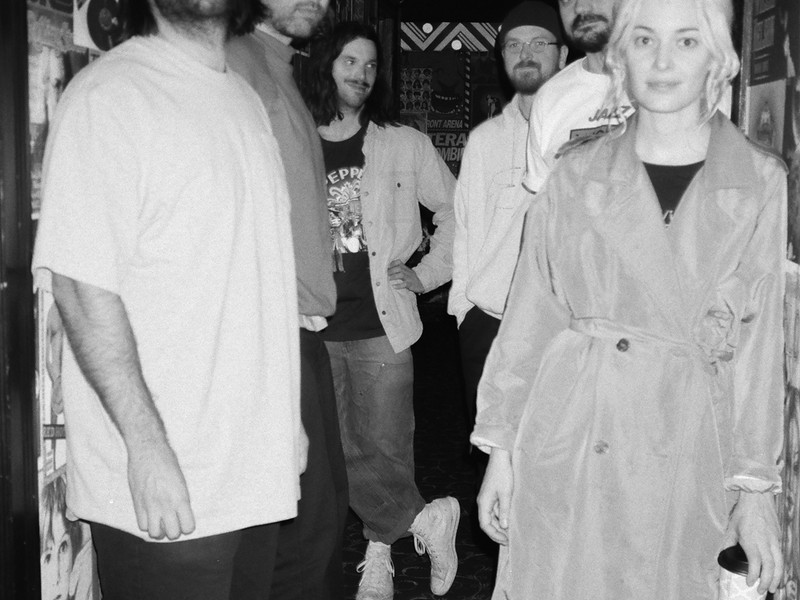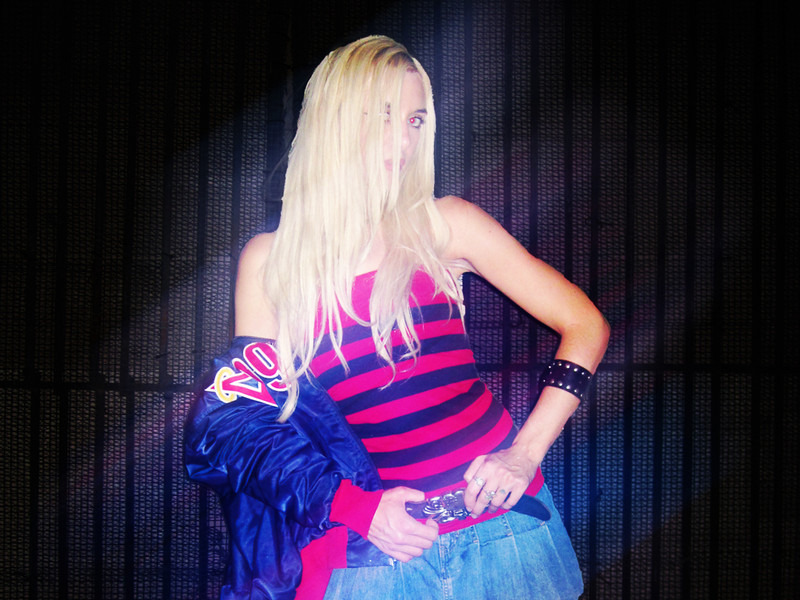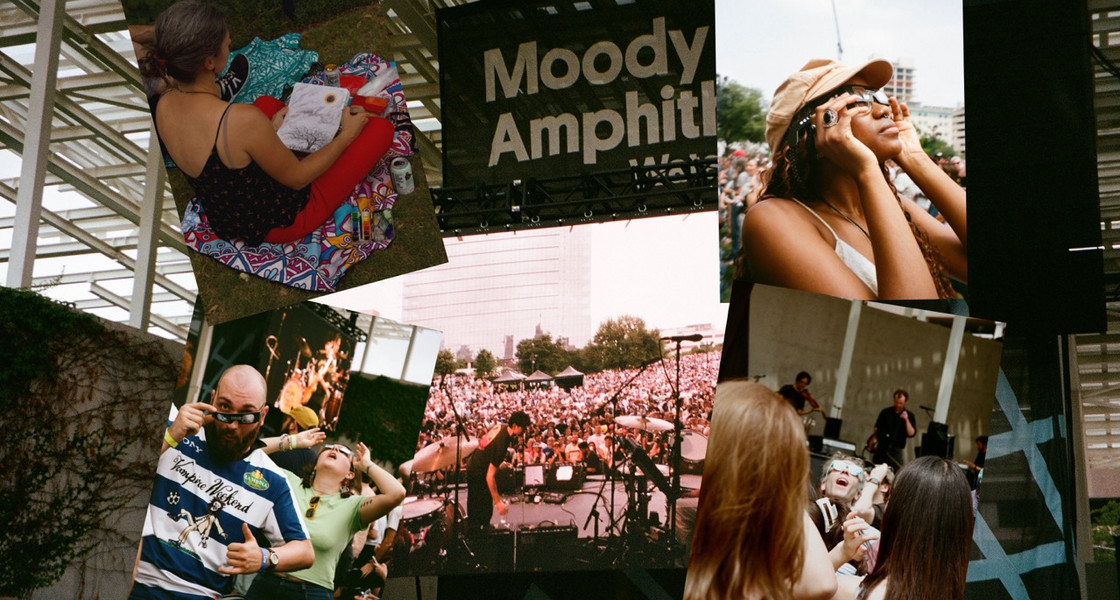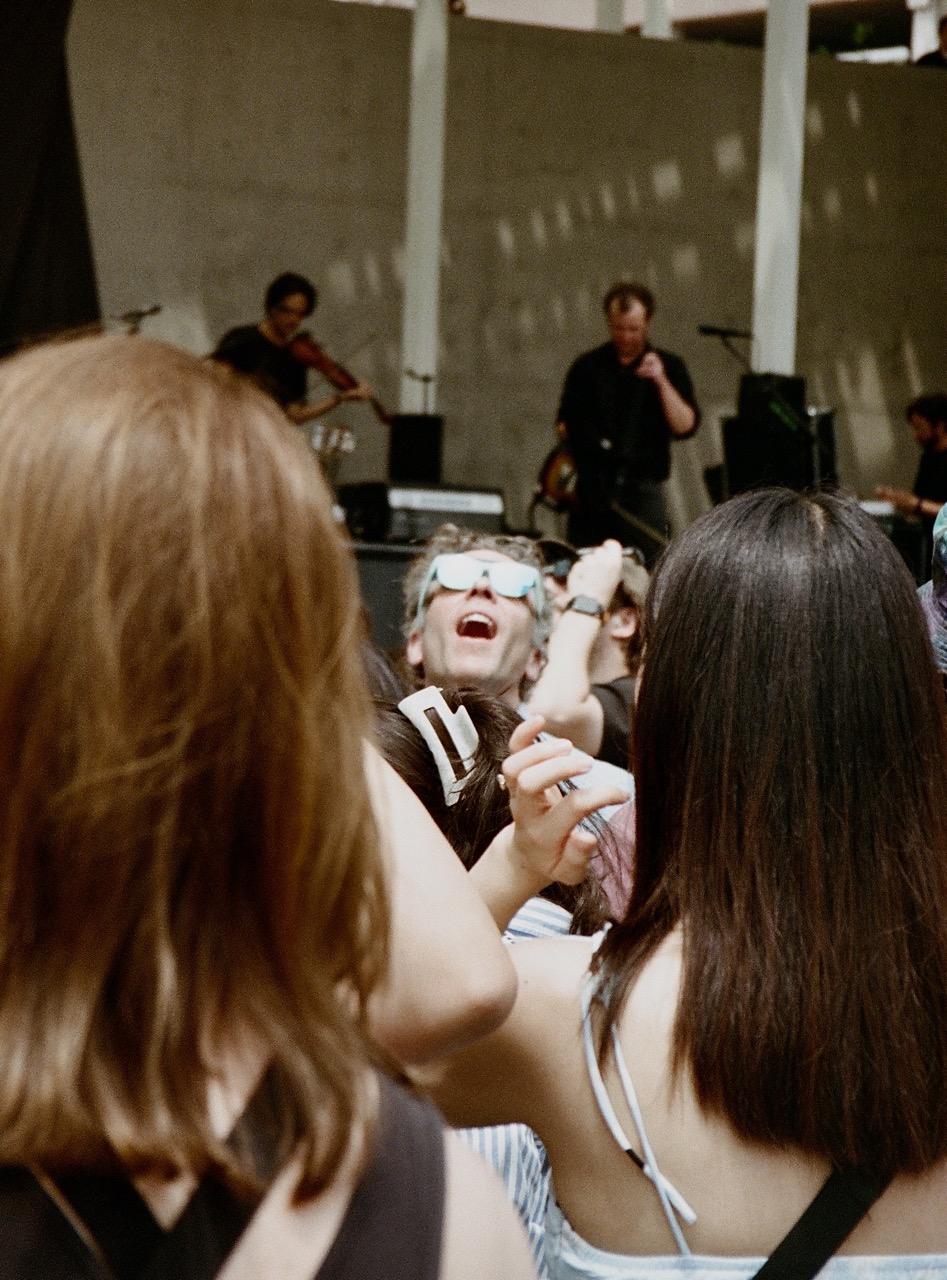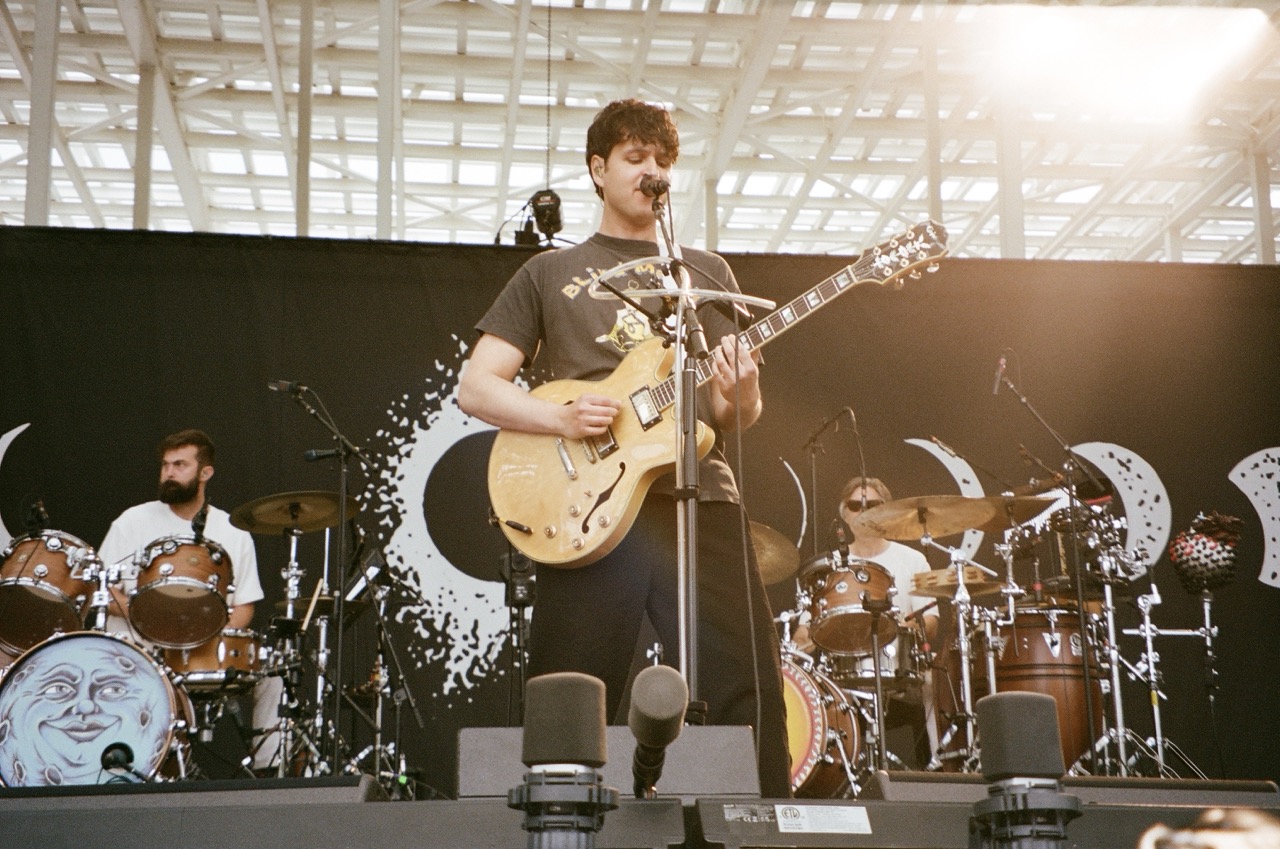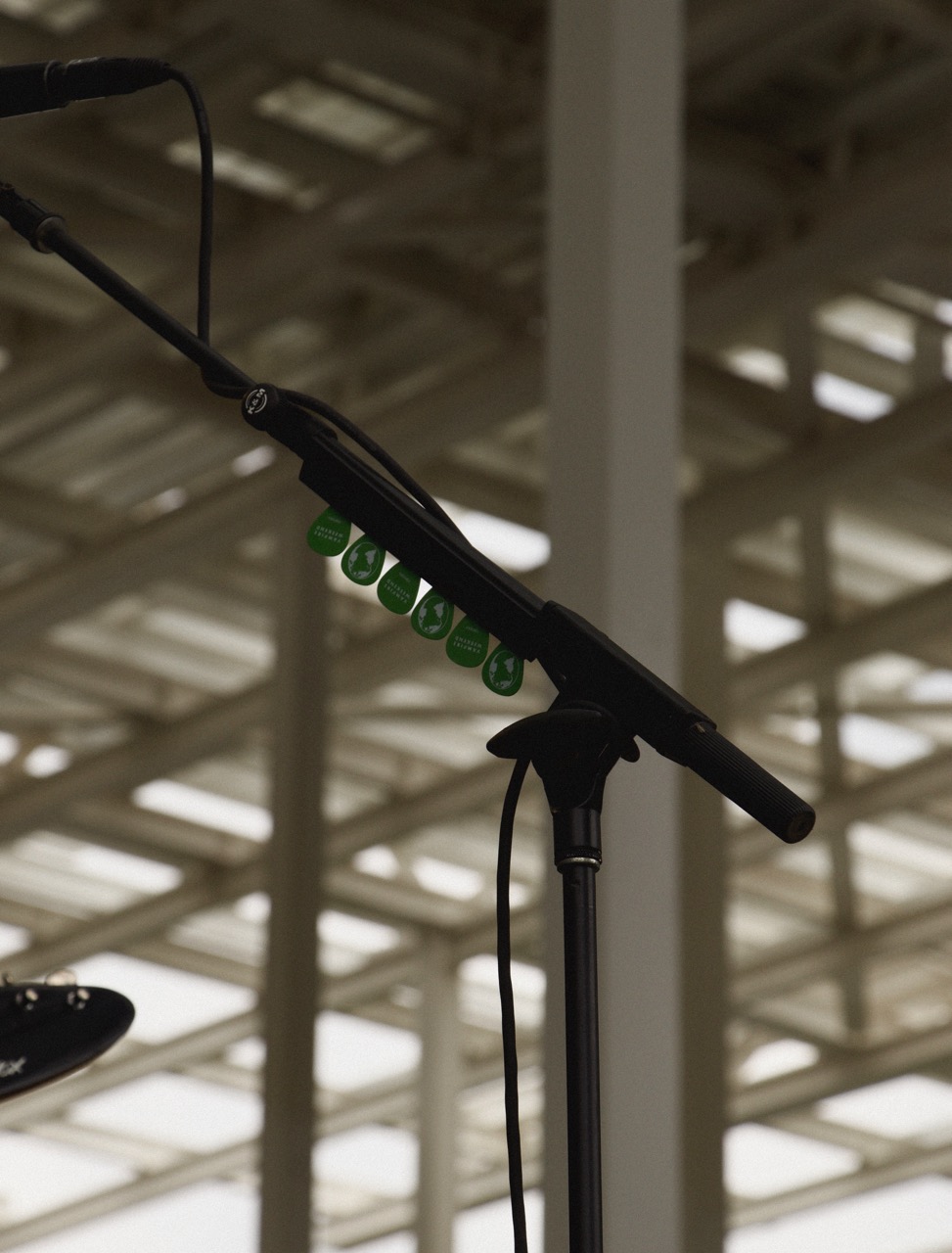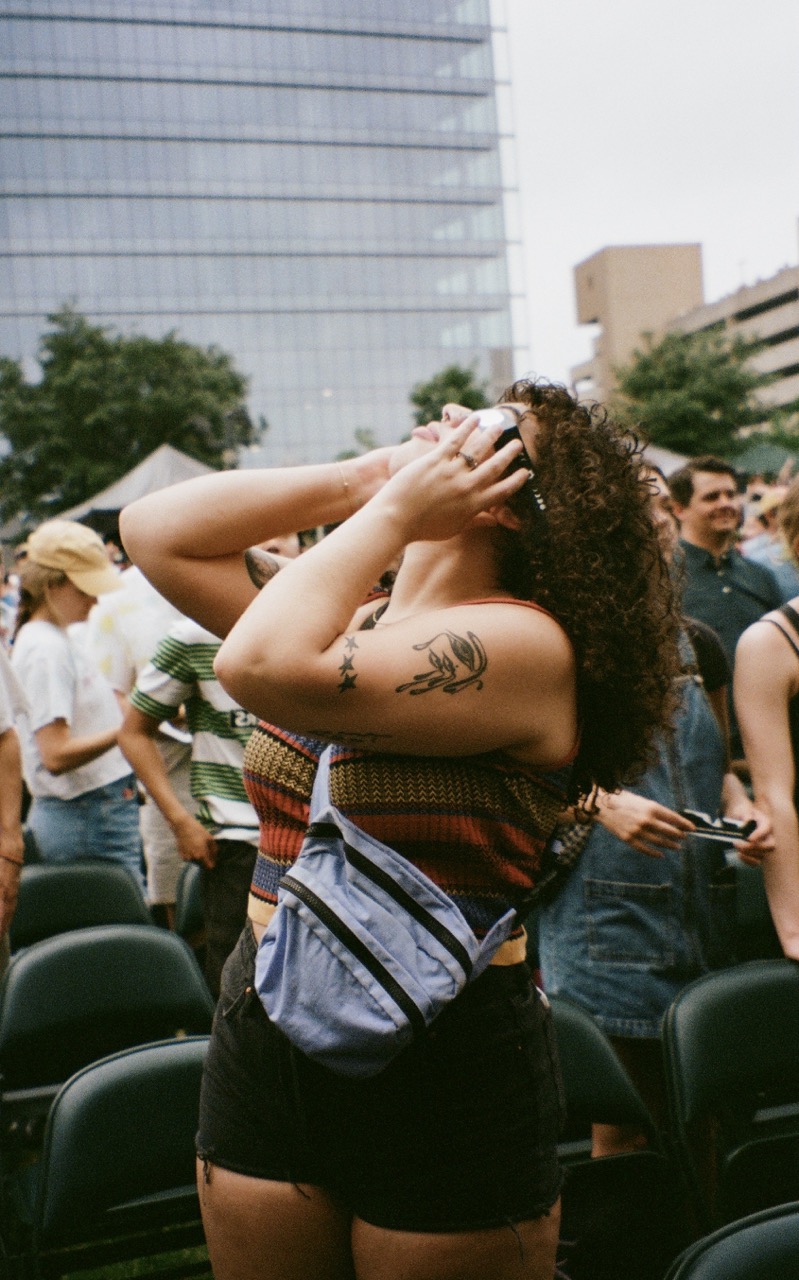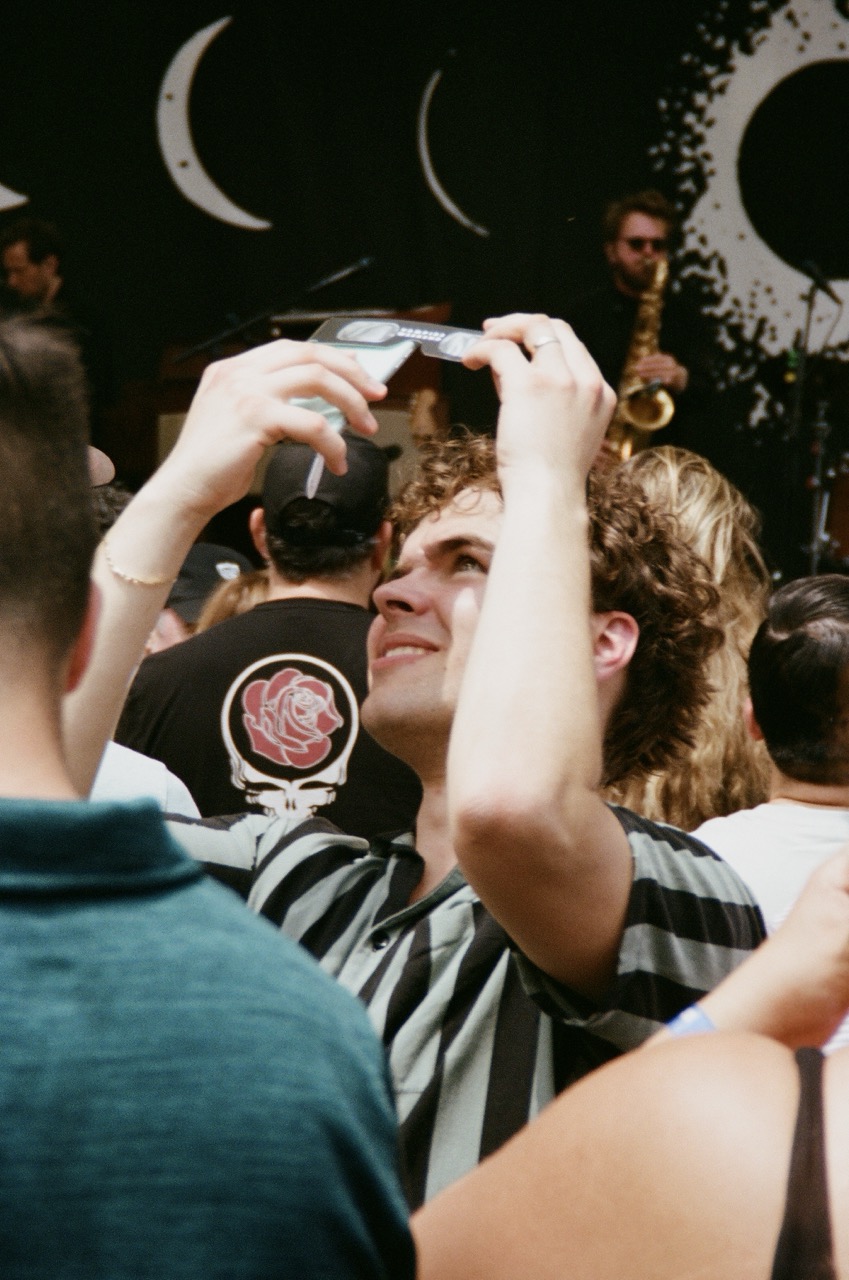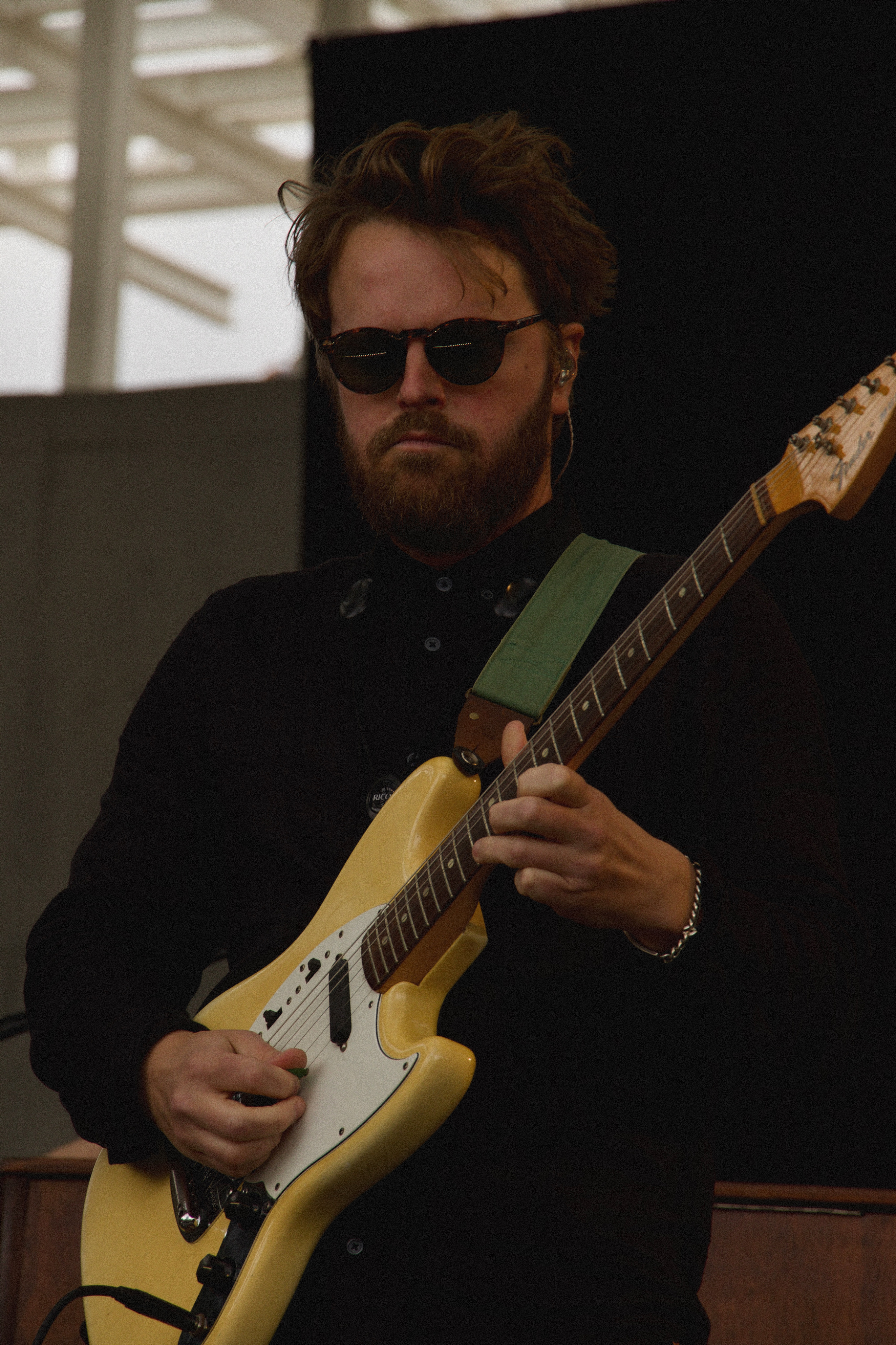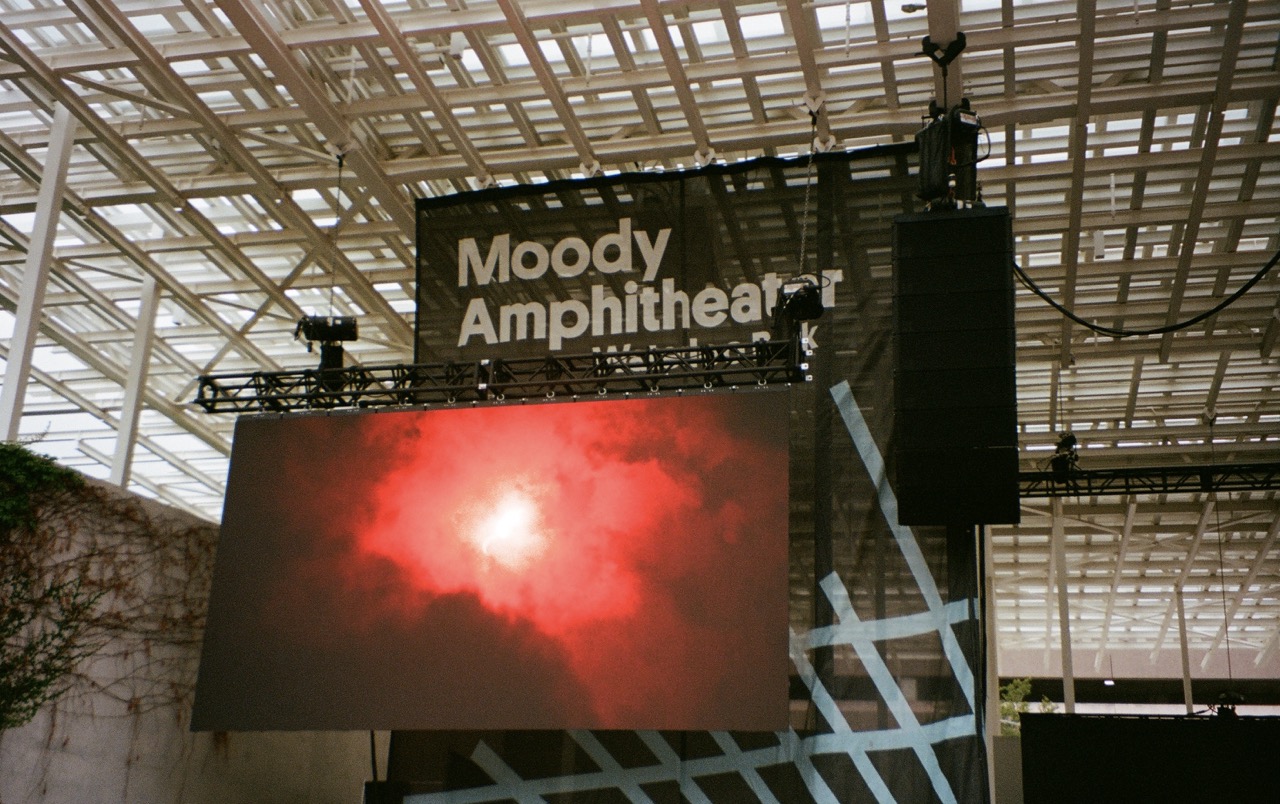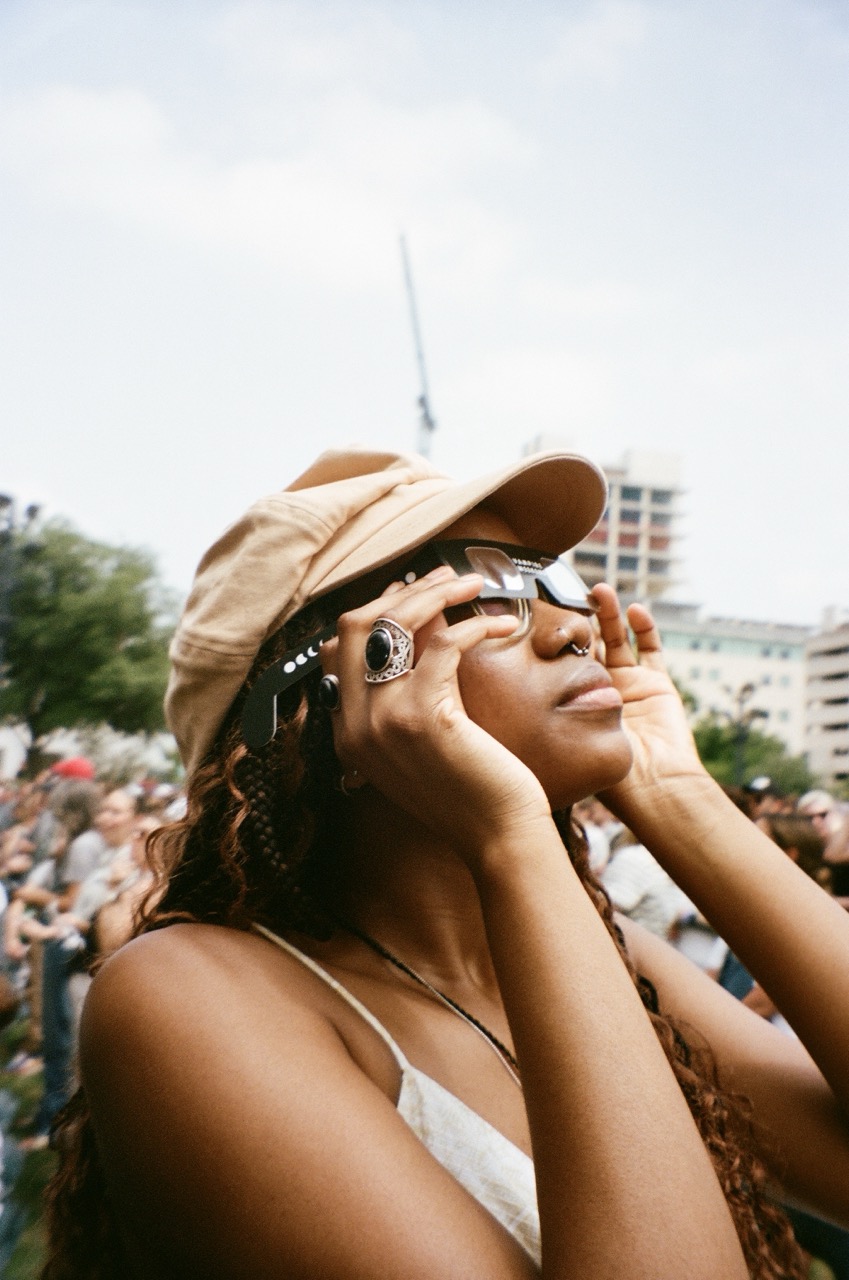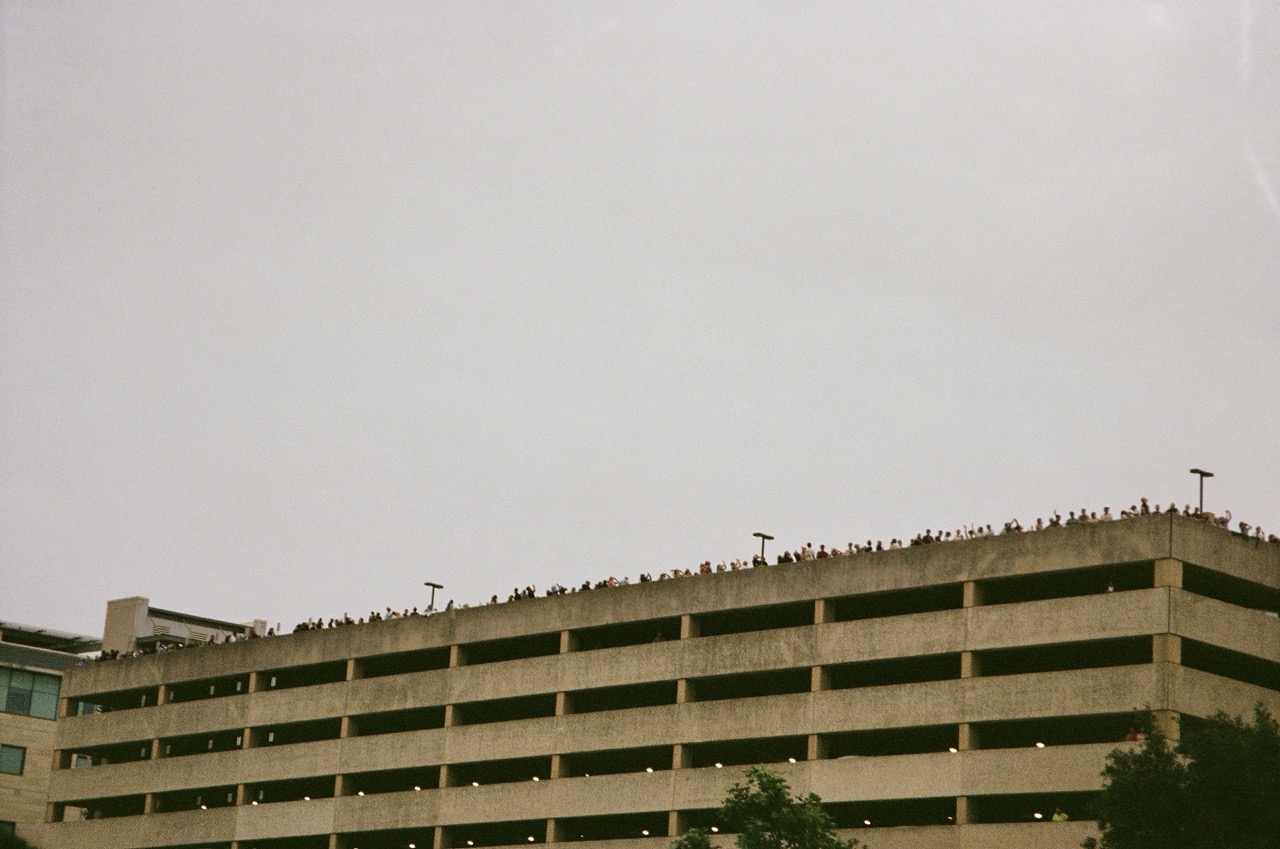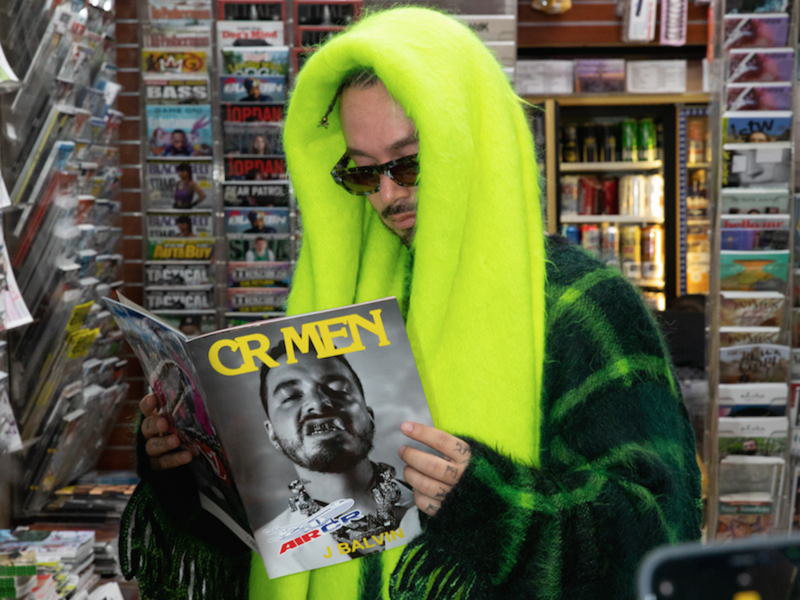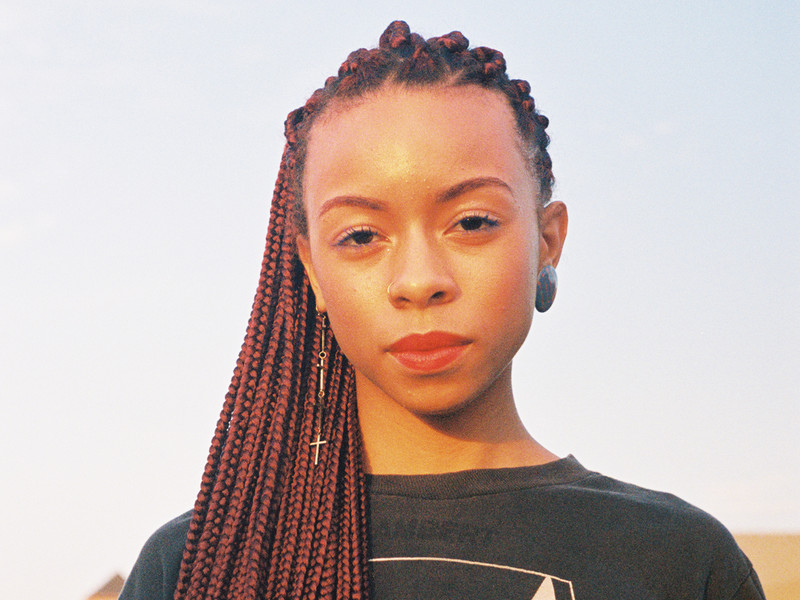Poetry, Sports Legends, and Home Movies: The Sonic Landscape of "Flowers At Your Feet"
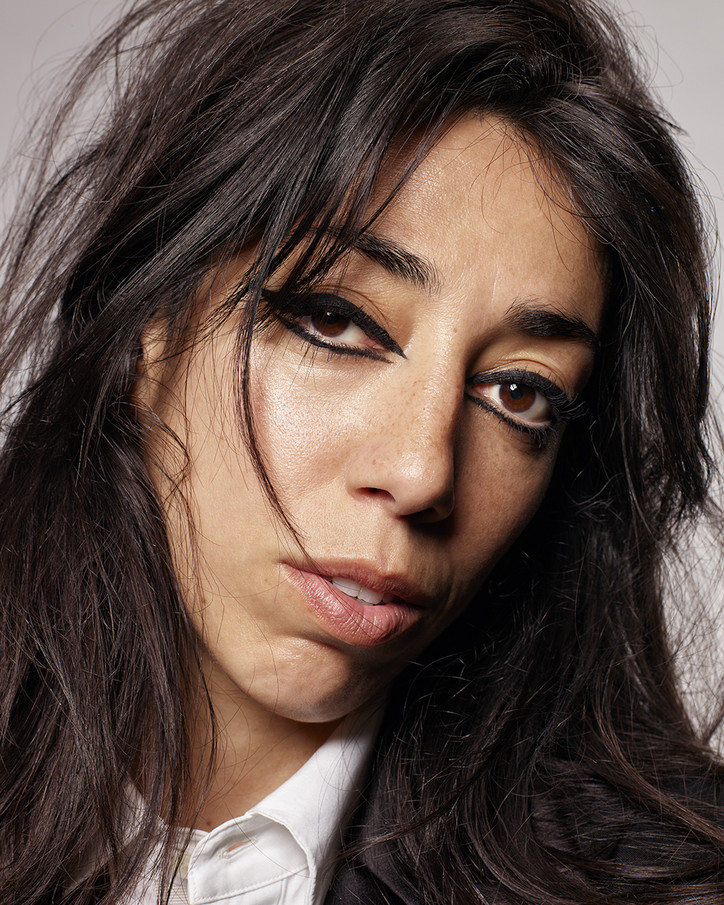
RAHILL wears SACAI blazer and shirt onesie.
Throughout Flowers At Your Feet, field recordings, snippets from home movies, references to film and poetry and allusions to sports legends give us a glimpse at who Rahill really is. From that, to the cover, which is a hazy photograph of her as an infant wearing a gold necklace passed down from her grandmother, it's clear that while she welcomes evolution, she revisits moments in her life like flipping through chapters in a favorite book. "I Smile for E," the lead single and first song on the album features her late aunt singing in Farsi, an acknowledgment of her heritage and a bridge between generations. Ultimately, Rahill calls us to pause, to consider what we spend our time on, and to focus more energy on the people that surround us.
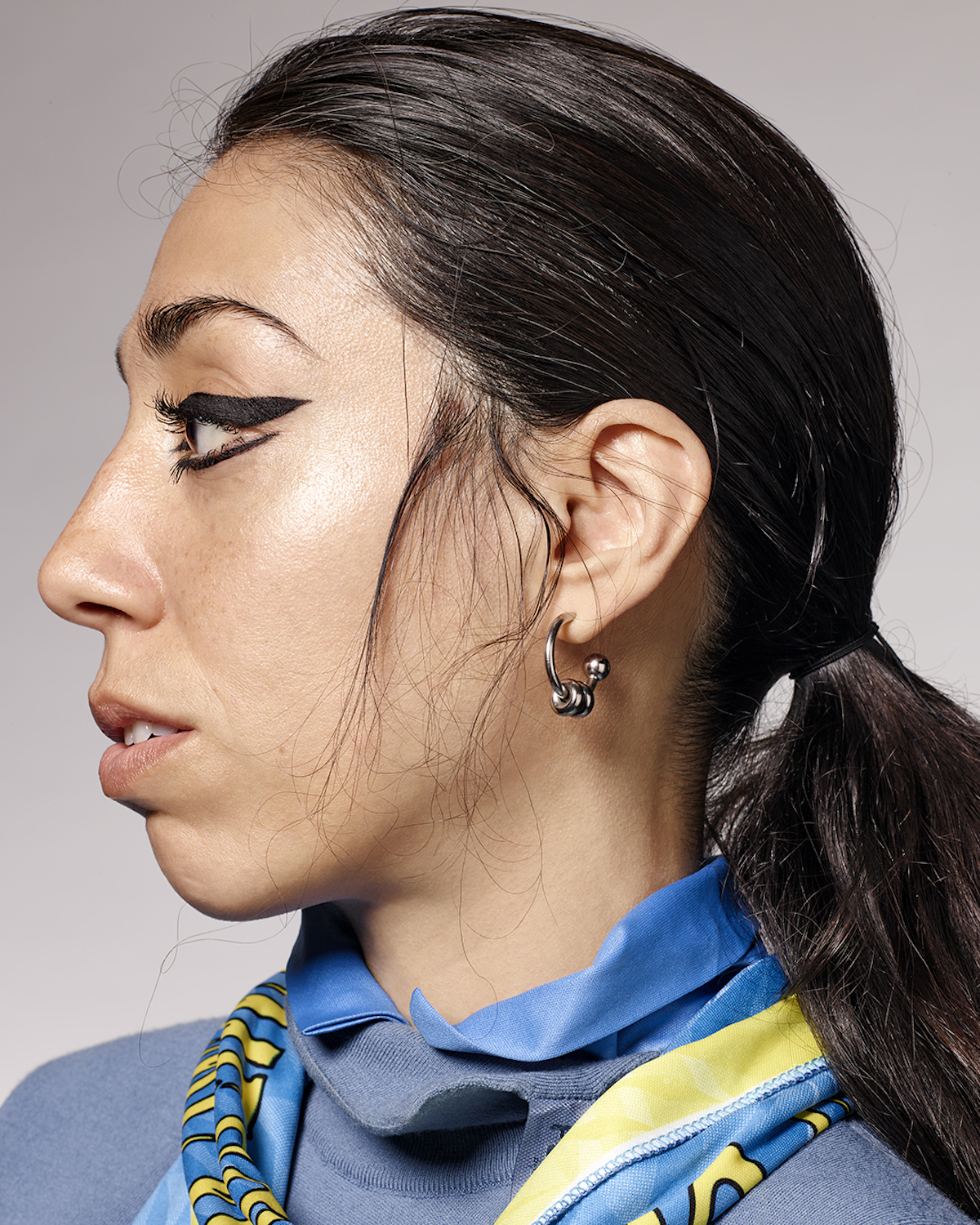
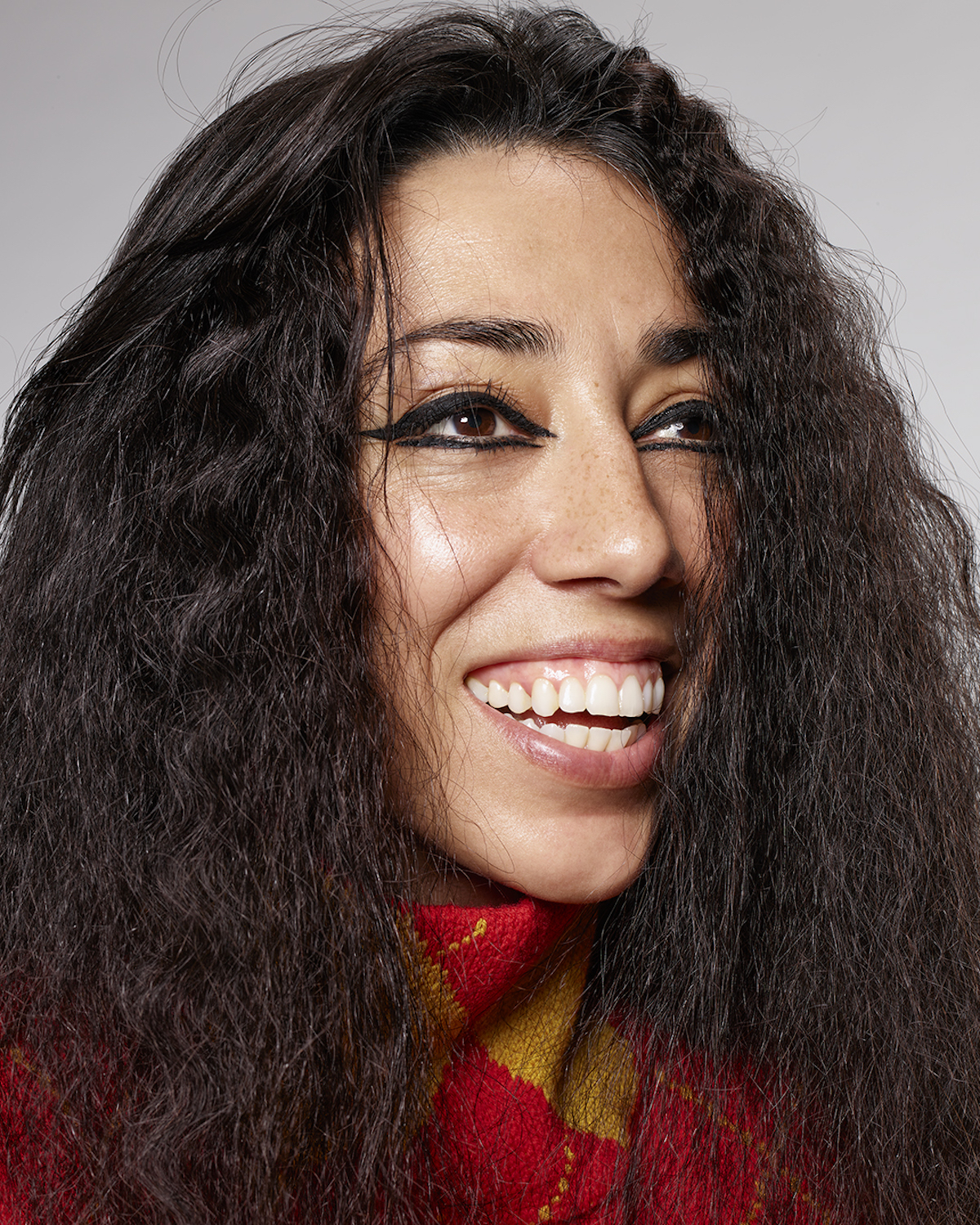
RAHILL wears FENDI sweater, vintage football shirt & scarf, stylist's own.
RAHILL wears LIBERAL YOUTH MINISTRY sweater.
So your album is coming out soon. I’d love to learn more about the journey that led up to Flowers at Your Feet — I hear a story in there of self-acceptance.
Well I’ve always sought different practices to communicate through. Art has always been a practice of communication for me. Being able to tell my story as a child of immigrants. Our generation is really defining that, but it wasn’t always easy to know one’s history with all the diasporas that occurred in the two previous generations. I chose music to connect that together for me and to find that place of being able to understand and appreciate what that means to me.
I’ve been very vocal about being Iranian and celebrating my culture, which is clear in my music – you can tell it has deep roots. I did it when it wasn’t cool. I was the weird kid at school. I was like, 'Fuck ya’ll,' you know? With Flowers at Your Feet, I finally let go of that anchor that holds us back from our truest selves. The album is a testament to that. I don’t give a fuck what’s cool, this just means a lot to me.
Do your childhood and familial experiences influence your musical approach?
Definitely, my dad was really into music and it made a huge impact on me. Music and poetry were always around so I grew to care about the art of storytelling. A lot of indigenous cultures have a kind of storytelling that is lost here in the West. Elders are like fucking encyclopedias, like my grandma. That’s really shaped my way of writing. It’s deeply rooted in our culture, and I think in a lot of indigenous cultures. Visiting Iran, and talking to my dad, I was always interested in old folk songs, but I can’t really seek that out with contemporary music.
Were there any specific musicians or poets your father would read/listen to that still inspire your sound?
There are a few. I love Hafiz and Saadi. They were regarded by western philosophers like Voltaire. Hafiz was the greatest, ancient — in the same realm as Rumi and both him and Saadi are from my dad's city. I used to go to Hafiz’s tomb. It's a beautiful place — so many Sufis visit.
His poetry is very dense — someone has to interpret it for you, but I feel this close connection to it. My grandfather knew all his poems by heart. There’s this contemporary woman I like, she died in the 60s or 70s. Her name was Forough Farrokhzad. She was a pro-woman activist, headstrong, and didn’t care about how she was viewed. Her poetry is beautiful, raw, and almost uncomfortably true.
Do you seek that in your own music? Beauty and truth.
I do believe that it’s shaped my music. I’m very direct with what I think about. I love music that is all over the place and has a mystique to it, but with mine, I make it clear what I’m talking about. I have to be honest and vulnerable. I don’t know any other way to communicate.
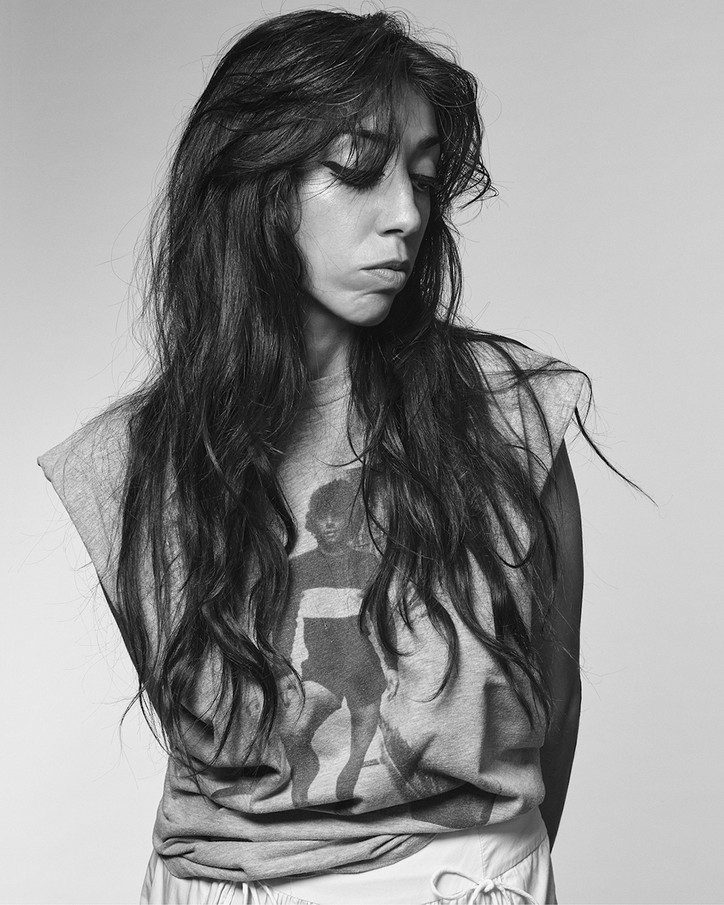
RAHILL wears vintage DIEGO MARADONA t-shirt from CLUB SHOP NY and SANDY LIANG skirt.
How do you balance being a multidisciplinary artist with your role as a musician? Does it come naturally?
Yeah, it totally comes naturally. My art practices inform each other. Sometimes I look forward to the exhaustion of singing. But I also love to focus on drawing a series. Recently I’ve been making visuals for the music on the album and that's been so fun. Oh my god, I have so much respect for videographers and directors now.
For sure. What was it like collaborating with Beck and Jasper Marsalis on the album?
Well, Jasper is a good friend. We actually met in the studio. My producer Alex Epton had worked with him and knew that we would get along so he brought him in. When I met him, I didn't know who he was, but I knew that he was particular. He left an effect, and we got along really well. We just bounced in the studio so I was very grateful that he wanted to work on these songs together. He’s truly such an incredible, and talented musician. I’ll send him a vocal melody and from the tone in my voice he can play guitar and evoke the same emotion I’m trying to convey.
And then I met Beck at a show in LA. And I was like, “What?” It was super surreal. He’s very kind. We were just talking about music and then we exchanged numbers. We stayed in touch, texted back and forth, and eventually, we bonded over cool music stuff. I realized he was a nerd like me so we had a lot to talk about. I started sending him some of the songs on the album and he was really encouraging. It was a huge affirmation because he’s a big inspiration. I didn’t hesitate, I told him that I would love to collaborate on the last track. It was very cool and kind of like Kismet that we met, like once and then we just like, kind of bonded and I went to LA and I met up with him at his studio, and out of it came “Fables”.
Almost like a full-circle moment.
Yeah, yeah, totally.
You worked on this album mostly through lockdown, right?
Yeah, like the second half was written down. Or maybe the majority actually — yeah a good majority of it. It started before lockdown, then we couldn’t do anything for a while, then it was a bit laxer and would test for COVID and head into the studio, then send files back and forth.
How did you refine the album? Did you cut any songs?
Well, it’s funny — the song with Beck, for a while I was just not down for it. It was the last song that we recorded and I was like, “Man, I really feel like I'm trying to make it fit.” It's the fifth song on the album, so it felt so far away from the first few, but Beck actually tied it back into the realm of the album. The song is about family and fleeting emotions. The song after, “hesitations,” gets kinda hot. I knew that the listener would appreciate that one random song. So the album has fourteen songs, which is a lot. My producer and I were ready for the label to say no, but they were like, “Wow, amazing.”
The industry standard is 10 so for them to keep all 14, they must’ve really liked them...
For sure. I was like, “Are you sure?” I think every song blends really well into the next.
You were also part of the Brooklyn garage rock mainstays Habibi. How did that influence your solo work now?
Um, Habibi started when I was really young — over 10 years ago. And it was my first project so it's weird that I only ever did one other thing, although I did have some side projects. It was the beginning stages – we were DIY – so I didn’t really understand the music industry. It’s cool that we accrued a cult following and people really listen to those songs. While that was the start, it’s also super important for me to grow and evolve as a person. When you’re in a band you all bounce ideas off of each other which is great, but sometimes I want to lean into different genres. Habibi is like a sisterhood now, everybody’s really close.
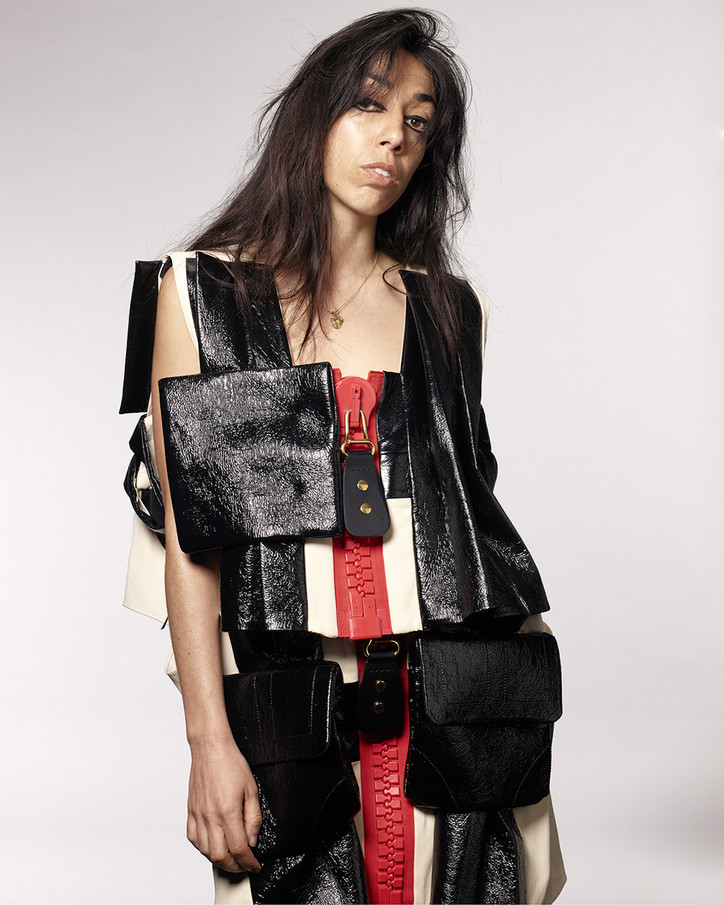
RAHILL wears LOUIS VUITTON, jewelry, talent's own.
Once the album drops, what are you looking forward to? What can we expect from your upcoming performances?
I am always nervous about playing shows. That’s the scariest part for me as a performer. I think some performers are like, “It’s the show, it’s all about the show,” but I like to write and I like to record. However, I'm really excited about what feels like a fresh start. I have an incredible band to play with and I’m really looking forward to seeing how the audience interacts.
What do you hope is your audience's biggest takeaway?
The nicest thing I’ve heard — from friends and others I’ve shared the record with — is that the album made them think of someone they’re close with. My hope is always to connect people back to others and themselves.
It’s crazy that you say that because when I listened to it for the first time, the tracks immediately made me reflect on myself.
I love that. That’s really what I aimed to do. It’s wild to be really vulnerable, but that headspace also centers you. You may get caught up, but you have yourself there to act as a guide through the madness. It’s about that personal connection, and the music facilitates that.
Totally. I can see that. It’s funny reading the title now with this context. Flowers at Your Feet. You’re telling the listener to look down and chill out for a second.
There are so many levels to that title. It’s exactly what you’re saying – me giving this to you, you giving it to somebody else. Flowers are also such a ceremonial thing for us in life. When you arrive at an airport you’re handed flowers. When you go to a grave site you leave flowers. At competitions, graduations, etc. there are flowers. It’s such a symbol of love and adoration. The title acts as the gate of the album that leads into a place of honor — all you have to do is leave all that other stuff at the door.
